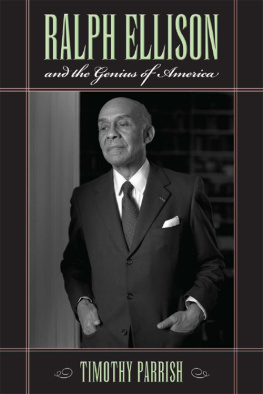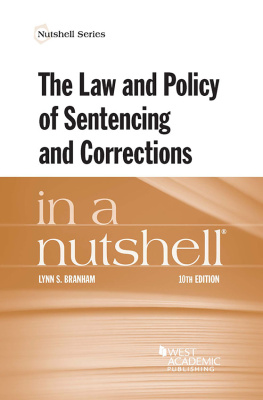
SENTENCING
Sentencing is the process through which the legitimacy of punishment is declared and justified. However, it is increasingly portrayed as a social activity which should be more responsive to the pluralistic needs and values of individuals and communities in contemporary society. It will therefore have to adapt to an array of different perceptions of what justice is and how it should be delivered, as well as different sensitivities and emotional responses to sentencing processes and outcomes.
At a time when fundamental questions are being asked about the relevance of existing forms of punishment in contemporary society, Sentencing argues for a profound normative understanding of the relationship between sentencing and its perception by citizens vital if we are to fully comprehend the nature and significance of punishment and the particular challenges it faces as a force for social cohesion. Henham explores this theme by focusing on key areas of debate within the field:
the treatment of gender and race in sentencing
the future role of sentencing in criminal justice governance
the development of new criteria for evaluating sentencing within a more socially inclusive framework.
Henham suggests that a greater focus on the relationship between penal ideology and the impact of sentencing in the wider community is essential for effective future policy-making in this area. Sentencing will be useful for both undergraduate and postgraduate students of law, criminology, criminal justice and sociology, as well as for academics and criminal justice policymakers.
Ralph Henham is Professor of Criminal Justice at Nottingham Law School, Nottingham Trent University and a Visiting Professor in the School of Law, Politics and Sociology at the University of Sussex. Recent publications include Beyond Punishment: Achieving International Criminal Justice (2010, with Mark Findlay) and Sentencing and the Legitimacy of Trial Justice (2011). He is a co-editor of Ashgates series on International and Comparative Criminal Justice and an editorial board member of the International Journal of Law, Crime and Justice.
KEY IDEAS IN CRIMINOLOGY
SERIES EDITOR: TIM NEWBURN is Professor of Criminology and Social Policy, Director of the Mannheim Centre for Criminology, London School of Economics and President of the British Society of Criminology. He has written and researched widely on issues of crime and justice.
Key Ideas in Criminology explores the major concepts, issues, debates and controversies in criminology. The series aims to provide authoritative essays on central topics within the broader area of criminology. Each book adopts a strong individual line, constituting an original essay rather than a literature survey, and offers a lively and agenda-setting treatment of the subject matter.
These books will appeal to students, teachers and researchers in criminology, sociology, social policy, cultural studies, law and political science.
Other titles in the series:
Penal Populism
John Pratt
Rehabilitation
Tony Ward and Shadd Maruna
Security
Lucia Zedner
Surveillance
Benjamin Goold
Genocidal Crimes
Alex Alvarez
Public Criminology?
Ian Loader and Richard Sparks
Contemporary Critical Criminology
Walter S. DeKeseredy
Feminist Criminology
Claire M. Renzetti
Crime News
Chris Greer
Policing
Michael Kempa and Clifford Shearing
SENTENCING
Time for a paradigm shift
Ralph Henham
First published 2014
by Routledge
2 Park Square, Milton Park, Abingdon, Oxon OX14 4RN
and by Routledge
711 Third Avenue, New York, NY 10017
Routledge is an imprint of the Taylor & Francis Group, an informa business
2014 Ralph Henham
The right of Ralph Henham to be identified as author of this work has been asserted by him in accordance with sections 77 and 78 of the Copyright, Designs and Patents Act 1988.
All rights reserved. No part of this book may be reprinted or reproduced or utilised in any form or by any electronic, mechanical, or other means, now known or hereafter invented, including photocopying and recording, or in any information storage or retrieval system, without permission in writing from the publishers.
Trademark notice : Product or corporate names may be trademarks or registered trademarks, and are used only for identification and explanation without intent to infringe.
British Library Cataloguing in Publication data
A catalogue record for this book is available from the British Library
Library of Congress Cataloguing in Publication data
Henham, Ralph J., 1949
Sentencing : time for a paradigm shift / Ralph Henham.
pages cm. (Key ideas in criminology)
Includes bibliographical references and index.
1. Sentences (Criminal procedure) 2. Sociological jurisprudence. I. Title.
K5121.H46 2013
345'.077dc23 2013002616
ISBN: 978-0-415-69365-3 (hbk)
ISBN: 978-0-415-69366-0 (pbk)
ISBN: 978-0-203-51986-8 (ebk)
Typeset in Sabon LT Std
by Out of House Publishing
CONTENTS
The ideas presented in this book have developed over a number of years. They represent my current thinking about the relationship between the theory and practice of sentencing and issues of individual and social morality. I believe that a deeper understanding of such matters is crucial if we are to forge a system of punishment during the twenty-first century that resonates with the needs and expectations of citizens and communities everywhere.
I wish to thank Mark Findlay for encouraging me to think more profoundly about the relationship between the social and moral aspects of sentencing and its governance role in international, domestic and transitional justice settings. I have also gained much from Roger Cotterrells seminal writings on law and morality and his profound explorations of law in the context of community. I also extend my sincere thanks to Loraine Gelsthorpe, whose incisive comments and thoughtful reflections have greatly influenced my thinking about the relationship of sentencing to questions of gender and social cohesion more generally.
Finally, I express my gratitude to Nottingham Law School for its invaluable support over many years, and to the universities of Cambridge, Oxford and Sydney for affording me the vital space to think and develop my ideas as a visiting academic.
As always, my wife, Annemarie, bore the brunt of the many intrusions to normal life resulting from my work on this book. And, as always, she has supported me throughout with her customary enthusiasm and constant encouragement.
All errors or omissions in the book are, of course, mine alone.
TIME FOR A PARADIGM SHIFT
THE PURPOSE
This book proposes a new paradigm for sentencing; one that links it directly to social morality. The book argues the case for changing the penal ideology that informs the norms, practices and impacts of sentencing. It advances the argument that the future legitimacy of sentencing ultimately depends upon the strength of the relationship between social morality and penal ideology (Henham 2011). It argues strongly that the future legitimacy of sentencing as a crucial component of criminal justice governance depends upon maintaining a coherent relationship between these factors. The rationale informing this proposition is that sentencing should become more socially inclusive, so that it contributes to the maintenance of social harmony and promotes social cohesion.








